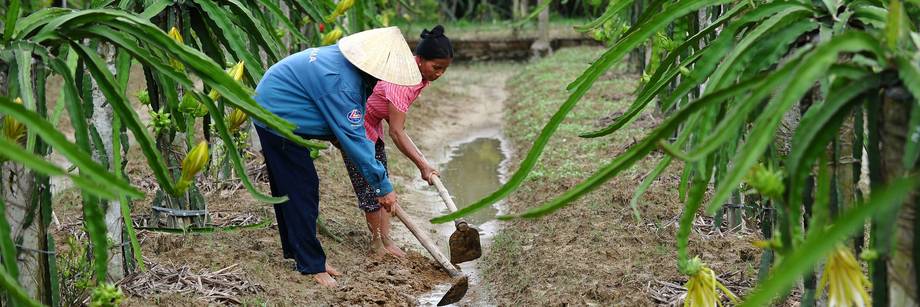The Low Carbon Agricultural Support Project (LCASP)
Livestock play an important role in Vietnamese agriculture. It accounts for about 23% of Vietnamese agriculture, with the proportion in some provinces as high as 35%. Over the last few years, livestock production has increased sharply. Home-raising of pigs is a very common activity among rural Vietnamese households and pig-meat is one of the mainstays of the Vietnamese diet. However, pig production results in health and environmental problem, especially water pollution and methane emissions.
The Ministry of Agriculture and Rural Development launched in 2003 the Biogas Program for Animal Husbandry Sector, which aims at building 168,000 biogas plants by 2012. The Asian Development Bank is helping the government achieving its target with the LCASP project. It will reduce air, water and soil pollution by supporting Climate Smart Agricultural Waste Management Practices (CSAWMP) for treating livestock wastes through the expanded use of biogas and bio-slurry processing technologies.
More than 50,000 biogas plants (BP) will be built, to treat animals dejections (especially pig dung) and produce biogas to replace fossil fuels. In parallel, farmers will be trained on Climate Smart Agriculture practices.
All these activities have the potential to mitigate climate change by avoiding the emission of 23.7 Mt CO2e during 20 years, i.e. 0.2 tCO2e/ha/yr. 91% of this potential comes from the adoption of better agronomic practices on paddy rice and maize. The impacts of biogas plants in terms of GHG are more limited, but ancillary benefits such as reduced water pollution have not been taken into account, although being of importance.

